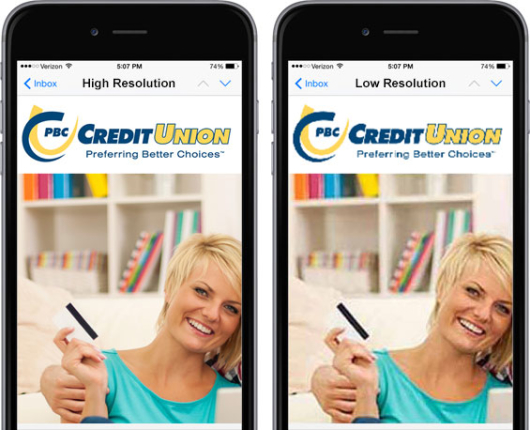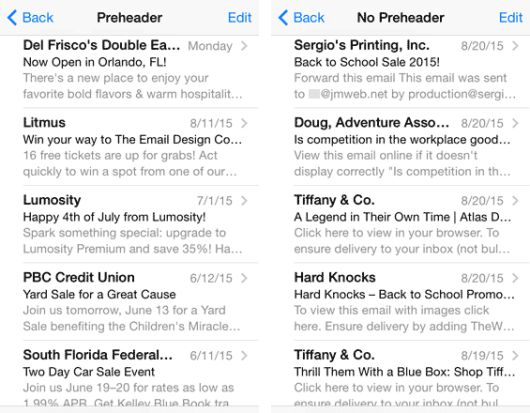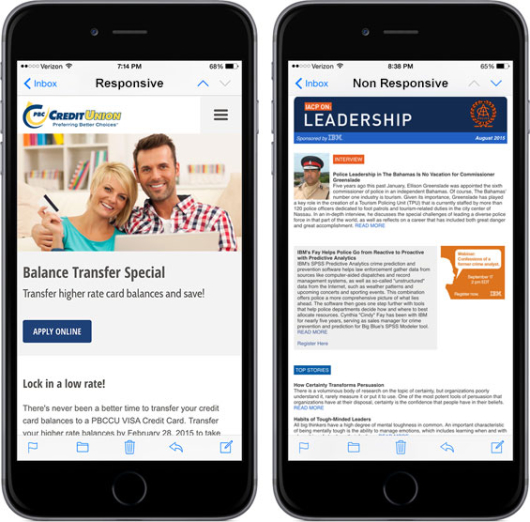It may seem hard to believe, but email has been around for over 50 years and is considered the oldest form of communication on the internet. Email has come a long way since its humble beginnings in the early 1960s at MIT, when users could only communicate with one another if they were logged into the same host. Nowadays, email is actually one of only two unique personal public identifiers out there (the other being phone numbers). Think about it: Not even your name is a unique identifier — there is more than one Steve Smith and Jennifer Miller. However, you’ll only find one [email protected].
Despite predictions that “email will die,” email did not go the way of the fax machine. It is still an essential tool for communication — between individuals, and between companies and consumers. Instead of the death of email, we have actually seen an increase in email, and a shift in how it is consumed; it is now checked more often than in the past, thanks to the rise of mobile devices.
Email has always, and will continue to be, an exceptionally powerful and trusted communication vehicle that enables financial institutions to build long-term relationships with their members. With this in mind, how can we enhance our email marketing campaigns to account for the explosion of mobile devices? Make sure you implement these three items.
1. Mobile Responsive
If you want to optimize your email marketing for mobile, you must — first and foremost — make it “mobile responsive.” Just as responsive websites adapt to the size and type of device you are using, responsive email design makes your email look great regardless of the device your member is using — a smartphone, tablet, laptop or desktop. No more zooming, pinching or squinting to see the tiny text, as the email not only adjusts in size, but also in format and layout to ensure an optimal reader experience.
Should banks and credit unions put this on their radar? Yes, and for good reason: the pendulum has swung toward mobile devices as the primary source of email views. Today, 53% of emails are opened on a mobile device, and that number will continue to grow.
Reality Check: Responsive email design is no longer a luxury, but a necessity, as emails not optimized for mobile are more difficult to consume and likely to be deleted. If you’re not designing your loan promotions and newsletters with mobile devices in mind, you are directing your message to the minority, not the majority.

Unlocking Digital Acquisition: A Bank’s Journey to Become Digital-First
This webinar will offer a comprehensive roadmap for digital marketing success, from building foundational capabilities and structures and forging strategic partnerships, to assembling the right team.
Read More about Unlocking Digital Acquisition: A Bank’s Journey to Become Digital-First

Why Industry Cloud for Banking?
PwC’s Industry Cloud for Banking helps deliver personalized products and services that today’s customers expect.
2. Optimize Images for High Resolution Displays
By making your email images high resolution ready, you ensure consumers digest the information in the most comfortable, eye-pleasing way. All images, including logos, banners and icons should look crisp and clear, because that’s what your members expect from their devices. So supersize your email campaign and serve it with a side of flawless images. Not only will your members love you for it, but it can have a dramatic impact on the reader’s response and your click-through rates.

Not long ago, you could get away with images scaled to 72 dpi. Not any more. The logo in the email on the right suffers from pixelization, and the photo of the woman looks grainy. The email on the left looks the way the credit union — and the reader — prefers.
Reality Check: Ready or not, the future of the web is HD. These days, high resolution displays have become the norm on virtually every device. Make sure your financial institution looks professional in front of your members.
Read More: 25 Inspirational & Responsive Banking Website Designs
3. Preheader Text
It’s safe to say most financial institution marketers are unaware that their preheader text can be customized, and are therefore underutilizing it. In case you’re not familiar with a preheader, it’s the short summary text that follows the subject line, and one of only three items a subscriber sees when an email is viewed in a mobile inbox (From Name, Subject Line, Preheader).
Ironically, preheaders are often neglected in the email marketing world. Why do we typically see the generic “Click here to view in your browser.” or “Having trouble viewing this email?” messages when this is valuable real estate? Instead, use these one or two lines to get your members excited and improve your open rate. Put your preheader to good use by:
- Teasing the content of your email
- Giving an incentive to open
- Elaborating on the subject line
- Creating a sense of urgency

The email inbox on the left has nice summaries of each email, thanks to preheaders that were properly customized. With the email inbox on the right, however, the opportunity to communicate meaningful messages in the preheader text has been wasted.

Reality Check: Preheader text has almost as much visual weight in an inbox as the subject line — take advantage of it. After all, you only have about 3-4 seconds to grab attention, raise interest and get your members to actually open your email.
There’s no doubt that email remains a beneficial marketing tool for financial institutions to strengthen member relationships, boost loyalty and ultimately increase deposits and loan growth. But, the inbox is a battlefield. Your emails are up against those of your competitors and all other messages in your members’ inboxes. So stay competitive and engaging and leverage the power of email marketing by optimizing for mobile.
And remember, providing a consistent experience to your members is key. If they receive a mobile responsive email with a call to action, ensure that call to action links them to page that is also mobile responsive!
Jerry Martinez is the Owner & Lead Developer at JM Web Services, Inc. JM Web is an interactive web development firm with over 15 years of experience in the credit union industry. The company collaborates with clients to design, develop, and maintain mobile responsive websites, design and send mobile responsive emails, and manage and engage with their members through social media. You can connect with Jerry through the company’s Twitter account and Facebook page.








